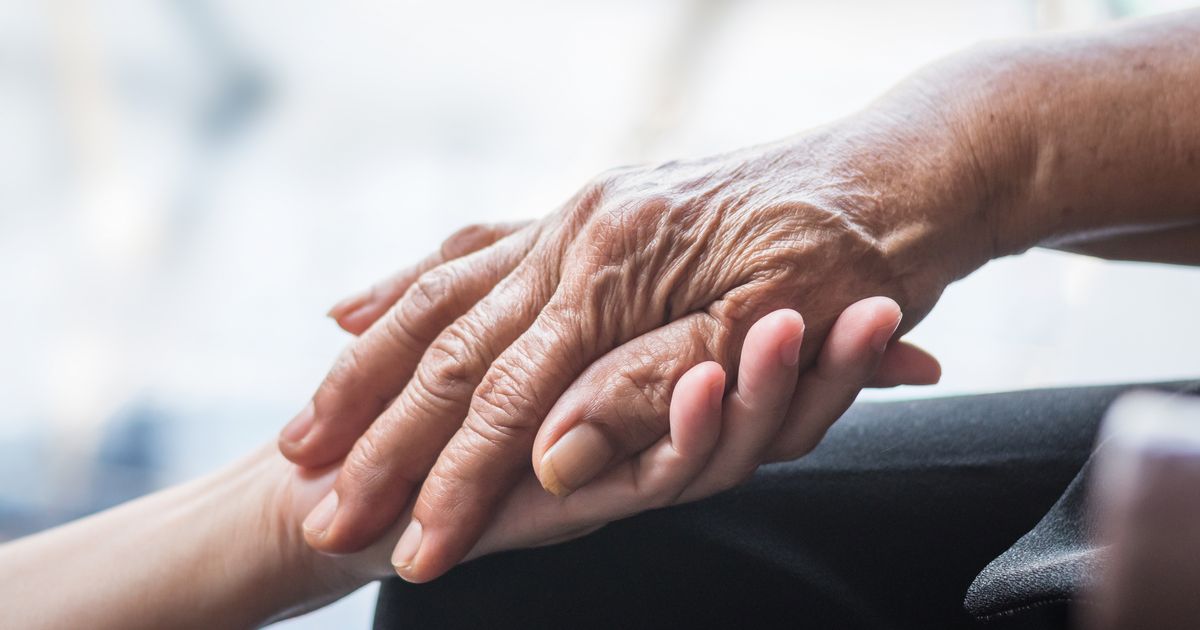If your aging loved one has Parkinson’s disease, you fully understand how it affects their body and mind. Watching the disease’s progression can be hard, and there are days when providing the caregiving support that’s needed simply wears you down. Because the onset of Parkinson’s can be subtle, there are several important signs to look for. April is national Parkinson’s Awareness Month, which makes it the perfect time to educate others about how to identify the symptoms and provide support to those who have been diagnosed with the disease.
What Causes Parkinson’s Disease?
Scientists have not found a definitive cause for Parkinson’s disease yet, but in general it’s a neurodegenerative disorder that targets dopamine-producing nerve cells in the brain’s substantia nigra region. Once that takes place, noticeable signs start to appear.
Parkinson’s Symptoms
Although the onset and progression of Parkinson’s varies, most patients have these symptoms:
- Tremors (slight shaking) while resting in the hand, chin, fingers or thumb
- Handwriting that’s smaller than it used to be
- Loss of smell
- Trouble sleeping
- Soft or hoarse voice
- Difficulty walking or moving around
- Constipation
- “Masked” face (serious, depressed or mad look)
- Stooped or hunched over appearance
- Fainting or dizziness
Most of these symptoms can also result from other health conditions or certain medications, so the first step is getting a definitive diagnosis from a neurologist.
How to Support Your Loved One
When your loved one is first diagnosed with Parkinson’s, it can be an emotionally devastating time for the two of you. As an informal caregiver, here are several ways to help them enjoy a higher quality of life as the disease advances:
Learn All You Can
Educate yourself as much as possible about Parkinson’s and what to expect. That will help you better understand and anticipate behavioral changes as events play out. A great online information source is the Parkinson’s Foundation.
Set Realistic Goals
Compile a list of their caregiving needs, like meals, housecleaning, bathing assistance and transportation. However, don’t try to do everything yourself as their condition worsens. Ask family members and friends to help, or maybe consider meal delivery and senior transportation services. Another option is hiring a professional in-home caregiver from a reputable home care agency.
Get Their Affairs in Order
As Parkinson’s progresses over the years it can be quite debilitating. Plan-ahead for that day by discussing with your loved one how to get their affairs in order. Be sure to respect their wishes while considering steps like a living will, durable power of attorney (POA), or do-not-resuscitate (DNR) order. A good licensed estate planner can help you draft the documents.
Let Them Participate
Don’t try to do everything for your loved one when it’s time to bath, dress or cook. Instead, encourage them to participate in their own daily care while you supervise for safety purposes.
Hone Communication Skills
Most Parkinson’s patients eventually reach a point where verbal communication becomes very difficult. Here are some communication tips from WebMD:
- Speak face-to-face while looking in your loved one’s eyes.
- Ask questions that can be answered with a simple “yes” or “no”.
- Parrot words that you understood, for example, “you want me to take you outside?”.
- Try getting your loved one to repeat what they said, speak more slowly or spell out words.
Take Care of Yourself
Caring for someone with Parkinson’s can be emotionally and physically draining. Take care of yourself too by taking caregiver breaks, eating a healthy diet, and getting plenty of sleep and exercise. Joining a Parkinson’s disease support group will give you a chance to share experiences and pick up some pointers.
In-Home Parkinson’s Support for Seniors in Alabama
When you could use some professional caregiving support for an aging in place senior with Parkinson’s disease contact Seniors Prefer Homecare. As a fully licensed and insured home care agency, our well-trained caregivers understand how Parkinson’s affects seniors and what’s needed to assist them. As an extended family serving in your loved one’s home, our goal is to make them feel as independent as possible so they can keep aging comfortably in place with dignity and a higher quality of life.
Our reliable in-home services range from personal care to live-in or 24-hour care. We have a licensed social worker on staff, along with RNs that are conveniently available to answer your calls. To learn more about our “cream of the crop” home care services, or to schedule a FREE in-home consultation with a Seniors Prefer Homecare case manager in Tuscaloosa or Huntsville, AL, today, please visit us at: www.seniorspreferhomecare.com!

